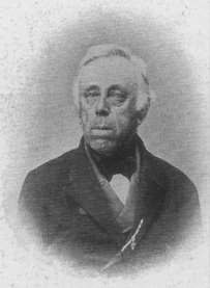Name-day song
(Poet's title: Namentagslied)
Set by Schubert:
D 695
[March 19, 1820]
Vater! schenk mir diese Stunde,
Hör ein Lied aus meinem Munde,
Dir verdank ich das Gelingen,
Meine Wünsche heut zu singen,
Denn du hast mit güt’ger Hand
Mir den Weg dazu gebahnt.
O, lass diese Hand mich küssen,
Sieh des Dankes Tränen fließen,
Denn sie hat mir mehr gegeben
Als Gesang: ein schönes Leben,
Und mit kindlich frohem Blick
Dank ich ihr des Lebens Glück.
Himmel! sende deinen Segen
Dem verehrten Mann entgegen,
Strahle ihm, des Glückes Sonne,
Schäum ihm über, Kelch der Wonne!
Und von Blumen voller Pracht
Sei ein Kranz ihm dargebracht.
Diesen Kranz in deinen Haaren
Möge Gott uns stets bewahren,
Und ich fleh’s mit nassen Blicken,
Noch ein zweiter soll dich schmücken,
Blau und golden: denn dir spricht
Jeder Mund: Vergiss mein nicht!
Father, devote this hour to me,
Listen to a song from my mouth!
I thank you for granting
My request to sing today,
Because, with a generous hand,
You have prepared the way for me.
Oh, let me kiss this hand!
Look at how my tears of gratitude are flowing!
Because this hand has given me more
Than song: a beautiful life;
And with a childlike, joyful gaze
I thank you for the happiness of life.
Heaven, send your blessing
Down on to this honoured man!
Shine on him, sun of fortune!
Overflow for him, goblet of happiness!
And with flowers full of splendour
Let him be presented with a garland.
This garland in his hair,
May God preserve it for us always,
And I beg this with moist eyes;
A second garland should also adorn you,
Blue and gold, because, speaking to you,
Every mouth is saying, ‘Forget me not!’
All translations into English that appear on this website, unless otherwise stated, are by Malcolm Wren. You are free to use them on condition that you acknowledge Malcolm Wren as the translator and schubertsong.uk as the source. Unless otherwise stated, the comments and essays that appear after the texts and translations are by Malcolm Wren and are © Copyright.
☙
Themes and images in this text:
Blue Cups and goblets Father and child Flowers Forgetting Gold Hands Names Songs (general) Songs for special occasions Tears and crying Wreaths and garlands
On 13th July 1819 Schubert was staying in Steyr, from where he wrote to his brother as follows: “At the house where I lodge there are eight girls, nearly all pretty. Plenty to do, you see. The daughter of Herr von Koller, where I and Vogl eat daily, is very pretty, plays the pianoforte well and is going to sing several of my songs.”[1] Josefine [Pepi] von Koller (b.1801) was involved in the performance of the Cantata for Johann Michael Vogl’s birthday on 10th August 1819 (Schubert’s D 666), the text of which was written by her neighbour, Albert Stadler.
It was Stadler who wrote to Schubert the following spring, asking him to compose a setting of the verses he had written for the name day of Josefine’s father, the iron merchant Josef von Koller (1780 – 1864), on 19th March. According to Stadler’s recollections, reported to a biographer of Schubert in 1858, he played the piano at the name day party and Pepi sang the commissioned verses for her father. We have to assume that two garlands of flowers had been prepared, with the second one (and the fourth strophe) being kept back at the end to serve as an encore after everyone thought the performance had come to an end.

[1] O. E. Deutsch, Schubert. A Documentary Biography London 1946 p. 121
☙
Original Spelling Namentagslied Vater, schenk' mir diese Stunde, Hör' ein Lied aus meinem Munde! Dir verdank' ich das Gelingen Meine Wünsche heut' zu singen, Denn du hast mit güt'ger Hand Mir den Weg dazu gebahnt. O, laß diese Hand mich küssen! Sieh' des Dankes Tränen fließen! Denn sie hat mir mehr gegeben Als Gesang: ein schönes Leben; Und mit kindlich frohem Blick Dank' ich ihr des Lebens Glück. Himmel, sende deinen Segen Dem verehrten Mann entgegen! Strahle ihm, des Glückes Sonne! Schäum' ihm über, Kelch der Wonne! Und von Blumen voller Pracht Sei ein Kranz ihm dargebracht. Diesen Kranz in deinen Haaren Möge Gott uns stets bewahren, Und ich fleh's mit nassen Blicken; Noch ein zweiter soll dich schmücken, Blau und golden, denn dir spricht Jeder Mund: Vergiß mein nicht!
Note: Schubert received Stadler’s poem in manuscript.


